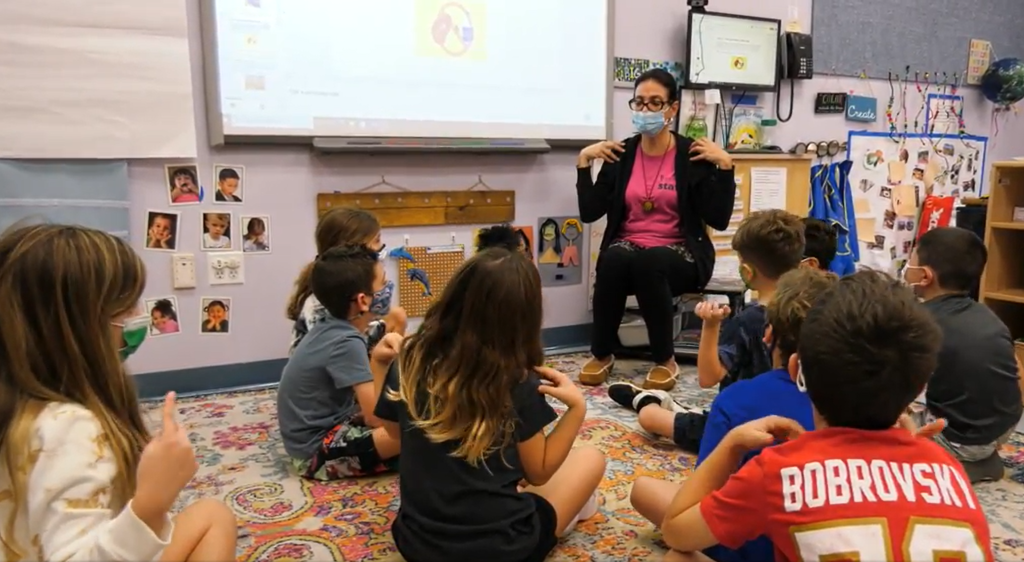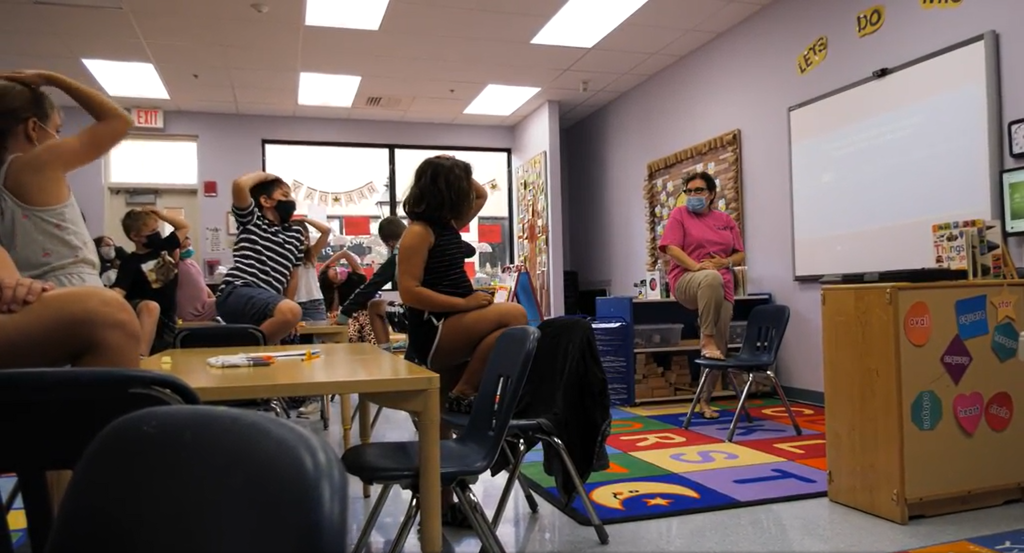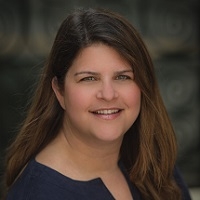Menu
Hebrew Curriculum
Kindergarten Through Bar | Bat Mitzvah
Our religious school has adopted the philosophy of the #OnwardHebrew program. It is comprised of several components that culminate with a students’ bar or bat mitzvah. Each aspect of this program builds Hebrew and Judaic knowledge in an accessible, age- appropriate way that gradually prepares our students for their b’nai mitzvah and Jewish life beyond.
Kindergarten Through 5th Grade

Hebrew Through Movement
Hebrew Through Movement
Every Sunday, small groups of students work with native Hebrew speakers to learn to understand and speak Modern Hebrew words and phrases. By listening and speaking, students are able to build a foundation of familiarity with the sounds and flow of the language, creating an easy onramp to reading Hebrew as they follow along in T’fillah to the prayers.
T'Fillah
T'Fillah
Every Sunday, our clergy lead us through prayers in Hebrew that students need to know to participate in services, which lasts them a lifetime. Our students lead these same prayers at their Bar/Bat Mitzvah ceremony. In addition to hearing and following along with the Hebrew, we teach the prayers in developmentally appropriate way so students are able to grasp the melody and overall flow of a service. We talk about sanctuary behavior and about the spiritual components of prayer as a community and as individuals.
Weekly Participation
Weekly Participation
Regular participation and exposure to Friday night or Saturday morning Shabbat services, starting in kindergarten, is the best way to help our students learn and feel comfortable with our liturgy and flow of the services. Families are able to access services in person or online on our website. In addition to celebrating Shabbat together, we also teach students Hebrew within the Religious School program.
Jewish Life Vocabulary
Jewish Life Vocabulary
Every week, new Hebrew or Yiddish phrases that can be heard as part of our Jewish communal lexicon, are introduced to our students. These phrases enhance their Hebrew and tie them to our ancestors and the larger global community.


Hebrew Through Movement
Every Sunday, small groups of students work with native Hebrew speakers to learn to understand and speak Modern Hebrew words and phrases. By listening and speaking, students are able to build a foundation of familiarity with the sounds and flow of the language, creating an easy onramp to reading Hebrew as they follow along in T’fillah to the prayers.
T'Fillah
Every Sunday, our clergy lead us through prayers in Hebrew that students need to know to participate in services, which lasts them a lifetime. Our students lead these same prayers at their Bar/Bat Mitzvah ceremony. In addition to hearing and following along with the Hebrew, we teach the prayers in developmentally appropriate way so students are able to grasp the melody and overall flow of a service. We talk about sanctuary behavior and about the spiritual components of prayer as a community and as individuals.
Weekly Participation
Regular participation and exposure to Friday night or Saturday morning Shabbat services, starting in kindergarten, is the best way to help our students learn and feel comfortable with our liturgy and flow of the services. Families are able to access services in person or online on our website. In addition to celebrating Shabbat together, we also teach students Hebrew within the Religious School program.
Jewish Life Vocabulary
Every week, new Hebrew or Yiddish phrases that can be heard as part of our Jewish communal lexicon, are introduced to our students. These phrases enhance their Hebrew and tie them to our ancestors and the larger global community.

Bar | Bat Mitzvah Preparation
One-on-One Hebrew Coaching
One-on-One Hebrew Coaching
About 14 months before their ceremony, students will be assigned to a Hebrew coach to work one on one for 35 half hour sessions. During these sessions they will be taught to recognize and read Hebrew, how to chant the prayers in their ceremony as well as their Torah and Haftarah portions. Student must need to practice independently to master the material taught before the next coaching session. By the end of the sessions, students should be ready to lead services and read from the Torah for their Bar/Bat Mitzvah ceremony. All of our prayers are available on our website to assist in their practicing and our Hebrew coaches are available for additional sessions if parents choose to hire them individually.
One-on-One
Hebrew Coaching
About 14 months before their ceremony, students will be assigned to a Hebrew coach to work one on one for 35 half hour sessions. During these sessions they will be taught to recognize and read Hebrew, how to chant the prayers in their ceremony as well as their Torah and Haftarah portions. Student must need to practice independently to master the material taught before the next coaching session. By the end of the sessions, students should be ready to lead services and read from the Torah for their Bar/Bat Mitzvah ceremony. All of our prayers are available on our website to assist in their practicing and our Hebrew coaches are available for additional sessions if parents choose to hire them individually.
Our goal is that we integrate Hebrew into every aspect of our program, starting in Kindergarten. Our students start learning modern speaking Hebrew in Kindergarten with a program called Hebrew Through Movement with a native Israeli Hebrew speaker.
Once the children really get a handle on speaking and the Hebrew sounds familiar to them and they can converse in short conversations and sentences, only then do we bring in what is called Decoding, which is reading Hebrew, where we make sure that they know what every letter is and how they sound when they're put together.
Once the children really get a handle on speaking and the Hebrew sounds familiar to them and they can converse in short conversations and sentences, only then do we bring in what is called Decoding, which is reading Hebrew, where we make sure that they know what every letter is and how they sound when they're put together.

Heather Erez
Director of Youth Education and Engagement





